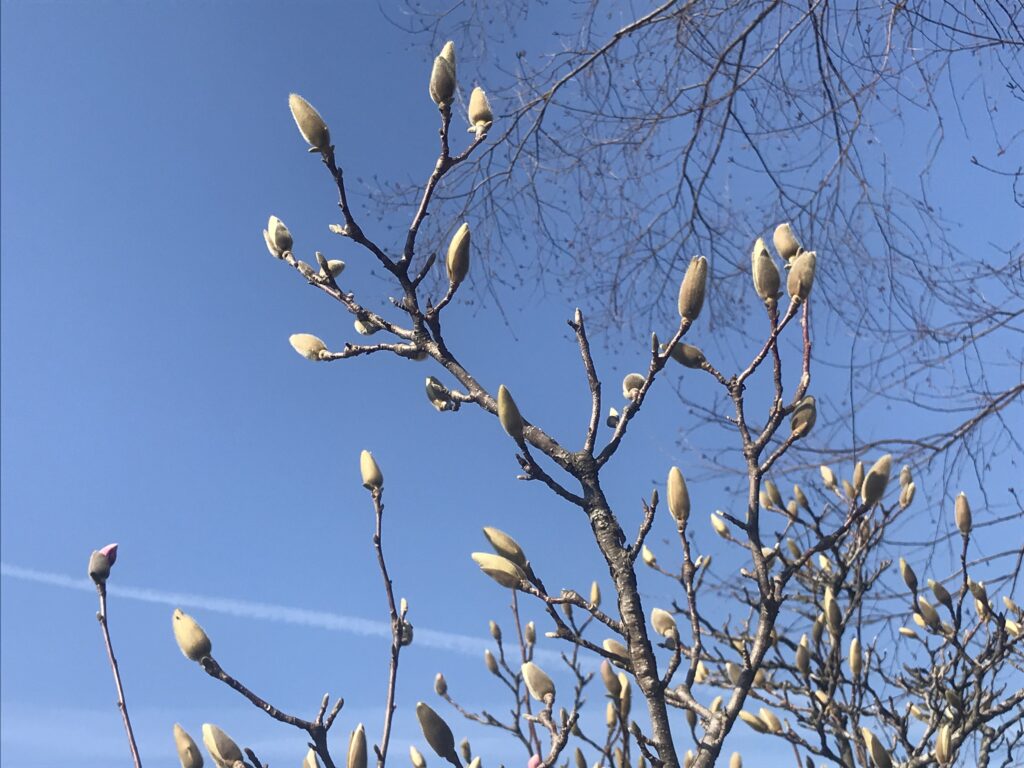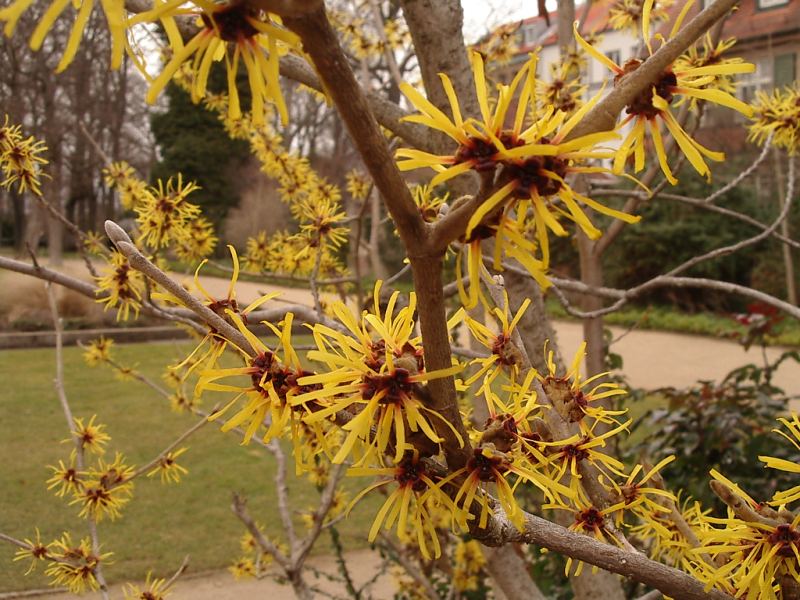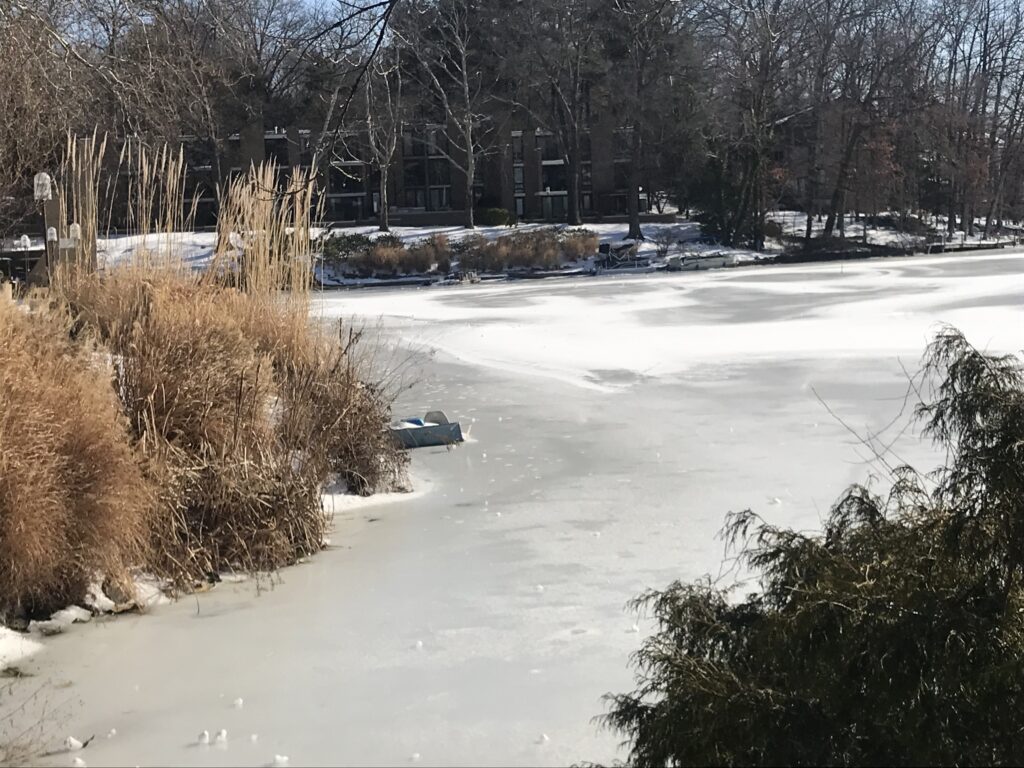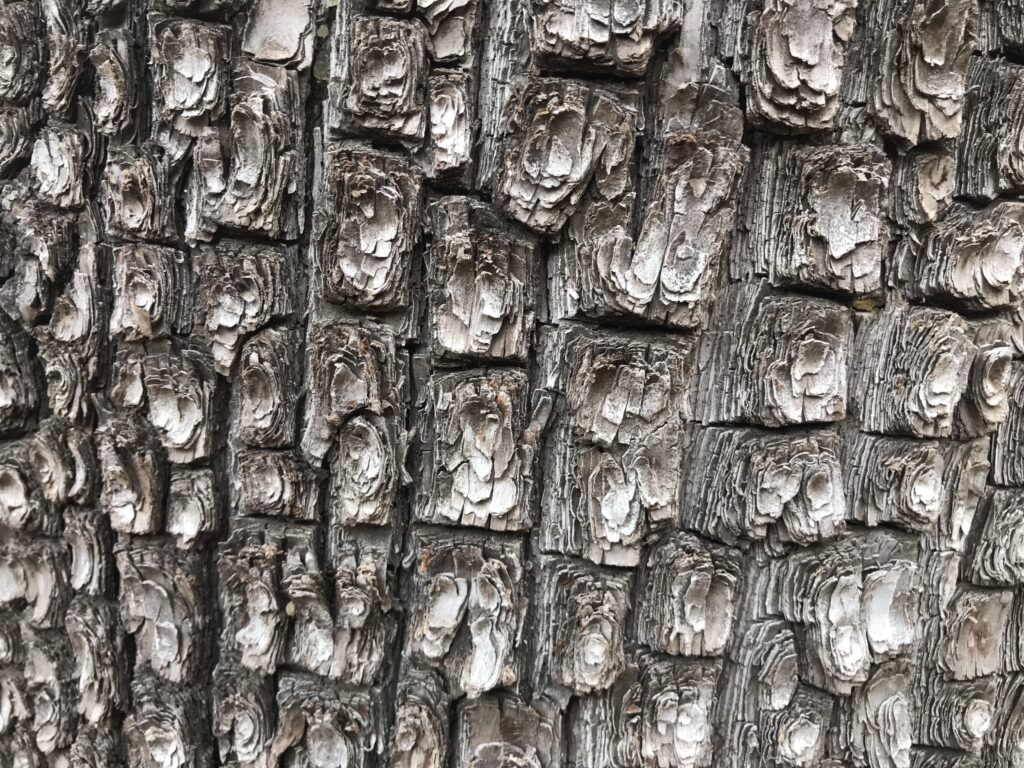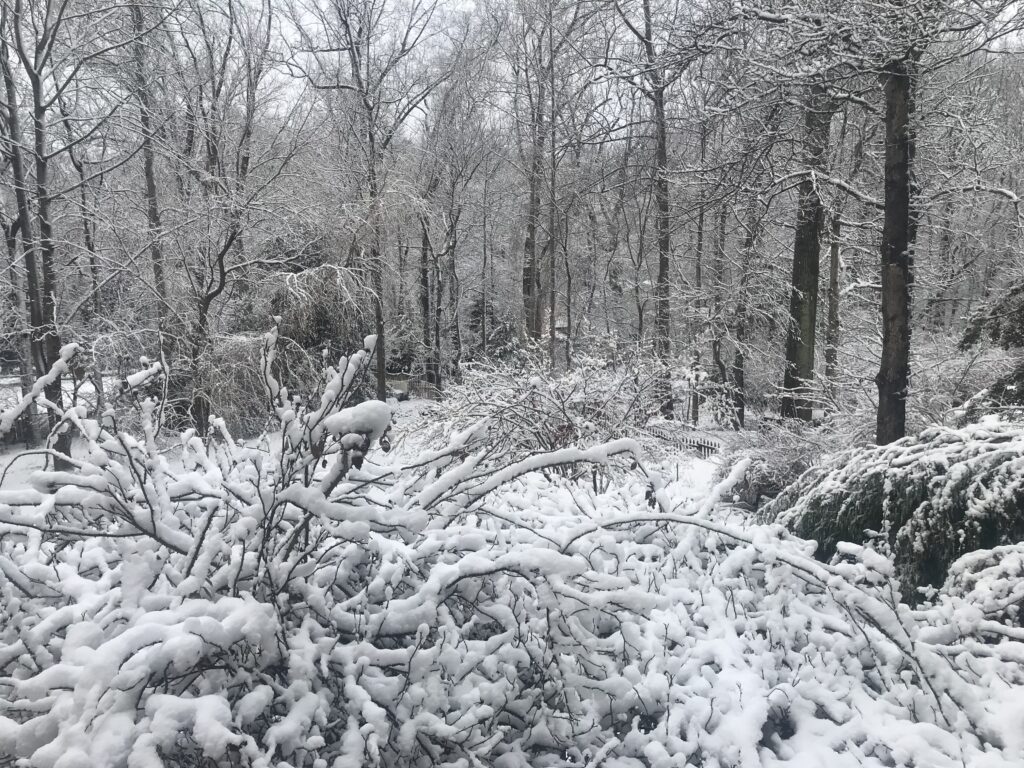Sip and Remember
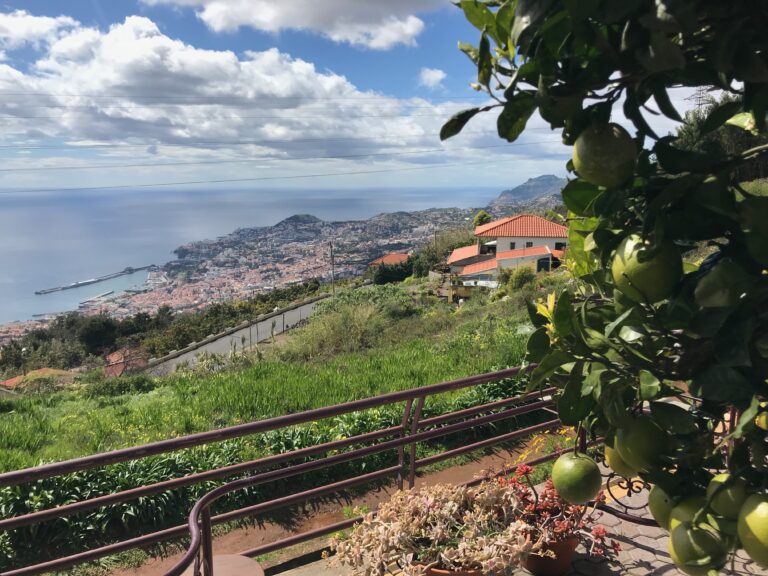
I titled last year’s post Hike and Sip and illustrated it with a view of the Atlantic Ocean framed by an orange tree (the view you see above, as a matter of fact).
I wrote the post on the Portuguese island of Madeira, where I was this time last year. Hard not to think of that sunny spot as I look out my office window at a foggy, wintry world. Hard not to think of the little teahouse on a hill, of the hiking trail that took us there.
Not that I’m complaining. I was lucky to be where I was last year and am lucky this year. too. Lucky to have warmth on the way (it’s supposed to be 70 on the weekend), lucky to have breath in my lungs and a skip in my step. Lucky most of all to have so many dear ones in my life.
Still, I’m going to indulge myself for just a moment. As I sip my tea this morning I’ll pretend that I’m staring not at a snippet of Virginia piedmont but at the vast shining ocean, at bougainvillea and rhododendron and calla lilies, at red tile roofs that stretch to the sea.
